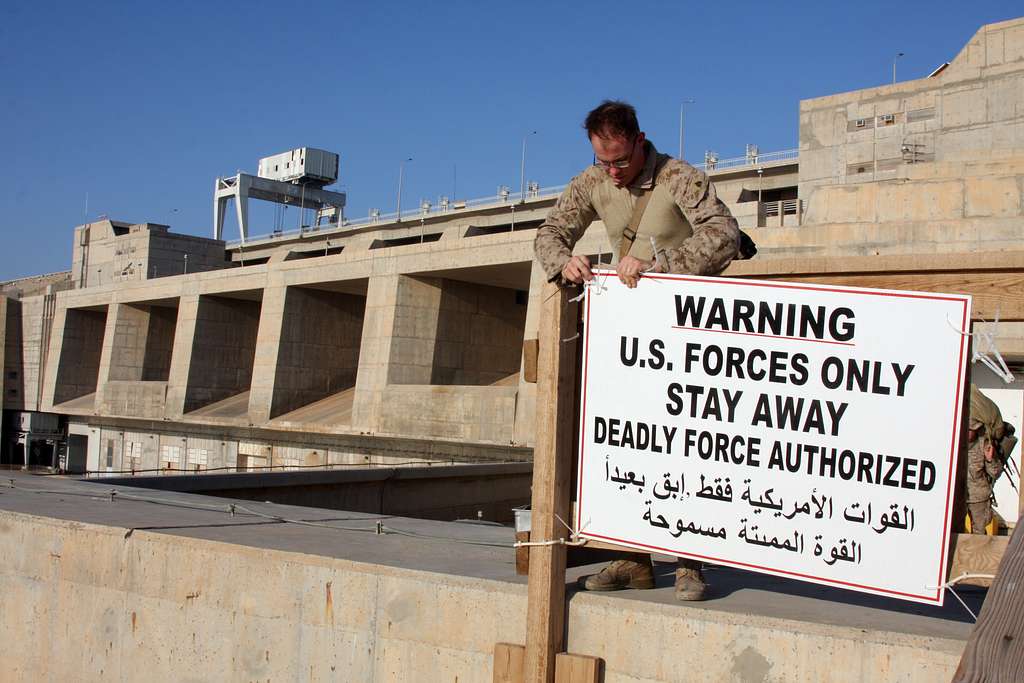By Aaron Oculto
War declarations and the deployment of armed forces abroad are often depicted as presidential unilateral actions that bypass the traditional policy-making process. Developments from the mid-twentieth to the early twenty-first century support this view as Presidents have exerted unilateral power to declare war and mobilize armed forces abroad in their role as Commander in Chief. However, a closer look at the 2002 Iraq Authorization for Use of Military Force (AUMF) reveals idiosyncrasies. This legislation grants the President the discretion to deploy military forces deemed “necessary and appropriate” to defend U.S. national security against the ongoing threat posed by Iraq. But how has this tremendous directive impacted the United States’ stance on foreign policy and national security? Furthermore, how does our assessment of the AUMF relate to current discourse and legislative efforts aimed at repealing the AUMF? The policy has had a significant effect on the executive branch’s assertion of armed forces abroad, highlighting the risks of unchecked presidential military authority. This concern is a primary driving agent behind congressional efforts to repeal the AUMF.
The AUMF’s language allows the President to use armed force if diplomatic or “peaceful means” fail to protect U.S. national security against Iraq [1]. It also conditions presidential action on the inability of the United Nations Security Council to pursue diplomatic action [1]. Thus, the AUMF effectively leaves it to the President to determine whether the conditions outlined in Section 3(b) are met, without establishing any checks to verify or constrain the President’s use of military force. While the AUMF requires the President to notify the Speaker of the House and President pro tempore of the Senate “no later than 48 hours” before taking action, this does not serve as a check on presidential power, rendering the initiation process for U.S. military action largely without congressional input or oversight [1].
The absence of clear language for congressional oversight in the AUMF has raised concerns among scholars and experts. The Friends Committee on National Legislation criticized the Obama administration’s use of the AUMF as an “alternative statutory basis” for the campaign against ISIS in Iraq and the Trump administration’s “expansive interpretation” of the AUMF to justify for the assassination of Iranian General Qassem Soleimani [2]. Lawfare’s Scott Anderson describes the AUMF’s expansive language as a potential vehicle for “military activity of nearly any type or scale so long as there is some nexus to Iraq.” Despite the end of military operations in 2011, the ambiguity of the directive allowed the U.S. to justify opportunistic operations in Iraq [3]. The Committee furthers that the AUMF has been stretched to “ignore congressional intent, and renders the law susceptible for further abuse” [2]. This confounds what scholars note as an existing informational asymmetry between branches of government as the executive branch’s heightened proximity to foreign policy matters demotes Congress to a reactionary position.
Furthermore, the AUMF has had major implications on the current state of the Republican Party, exemplified by the tensions salient in the newly passed Senate bill regarding repealing the AUMF. Senate Bill 316, first introduced in the chamber by Senator Tim Kaine (D-VA) on February 9th, 2023, sought to directly repeal the AUMF and the adjacent resolution passed in 2002. The bill passed through the Senate with a bipartisan vote margin of 66-30, signaling a rift within the GOP. In an article for The Hill, Senator Rand Paul (R-KY) affirmed the intra-party division, writing that “the majority of Senate Republicans who voted against repealing military authorization and who support funding for the war in Ukraine are out of step with GOP voters” [4].
Traditionally, Republicans have supported projecting U.S. power abroad through military and foreign policy means. However, the support for the Senate Bill repealing military authorization in Iraq indicates a significant shift and internal division within the party. This intra-party division is held in the House. According to an article by Politico, Democrats and Archconservatives are united in their approval for repealing military authorization [5]. Freedom Caucus Members and Progressive Democrats allied themselves against former Speaker of the House Kevin McCarthy (R-CA20) in favor of repealing the military authorization with the intention of “revamping government surveillance and curbing defense spending” [5]. This sentiment seemingly contradicts the normative view of Republicans, who assert themselves as the party to project US military power abroad.
What does this mean for Republicans on war powers? Is this a shift in the party that has remained a staunch advocate for US military power abroad for the past century? Yes, the current state of American political polarization has caused internal fractures within the Republican Party, mobilizing the extreme wing of the party against itself. The Republican Party must decentralize and wane the burning passions of the far-right wing to solve this Republican crisis of collective action. This is evident in the short tenure of House Speaker Kevin McCarthy, who failed to unite the ideologically fragmented House Republican party. McCarthy’s plan not to “fast-track a war powers bill to the floor” delayed this issue but was far from alleviating it [6]. As of March 30th, 2023, Senate Bill 316 remained in the House, with its future, and that of the Republican Party’s stance on war powers, unknown for the undetermined future. These tensions over the AUMF leave American foreign policy, the cohesion of the GOP, presidential unilateral power, and the mobilization of American military personnel in limbo.
Works Cited
- Military Force against Iraq Resolution of 2002.” Congress. October 16, 2002. https://www.congress.gov/bill/107th-congress/house-joint-resolution/114/text.
- Brandon-Smith, Heather. “The 2002 Iraq AUMF: What It Is and Why Congress Should Repeal It.” Friends Committee on National Legislation. February 13, 2023. https://www.fcnl.org/updates/2023-02/2002-iraq-aumf-what-it-and-why-congress-should-repeal-it.
- “How the 2002 Iraq AUMF Got to Be so Dangerous, Part 1: History and Practice.” Lawfare. November 15, 2022. https://www.lawfaremedia.org/article/how-2002-iraq-aumf-got-be-so-dangerous-part-1-history-and-practice.
- Bolton, Alexander. “GOP Rift Exposed as Senators Warn McCarthy against Iraq Vote.” The Hill. March 29, 2023. https://thehill.com/homenews/senate/3924776-gop-rift-exposed-as-senators-warn-mccarthy-against-iraq-vote/.
- Wu, Nicholas. “Freedom Caucus and Progressives Lock Arms — and That Could Be Bad News for McCarthy.” POLITICO. April 6, 2023. https://www.politico.com/news/2023/04/06/freedom-caucus-progressives-mccarthy-00090444.
- Carney, Jordain, and Sarah Ferris. “McCarthy’s Newest Challenge: Keeping the House GOP Peace on War Powers.” POLITICO. March 22, 2023. https://www.politico.com/news/2023/03/22/aumf-mccarthy-gop-war-00088145.






Be First to Comment